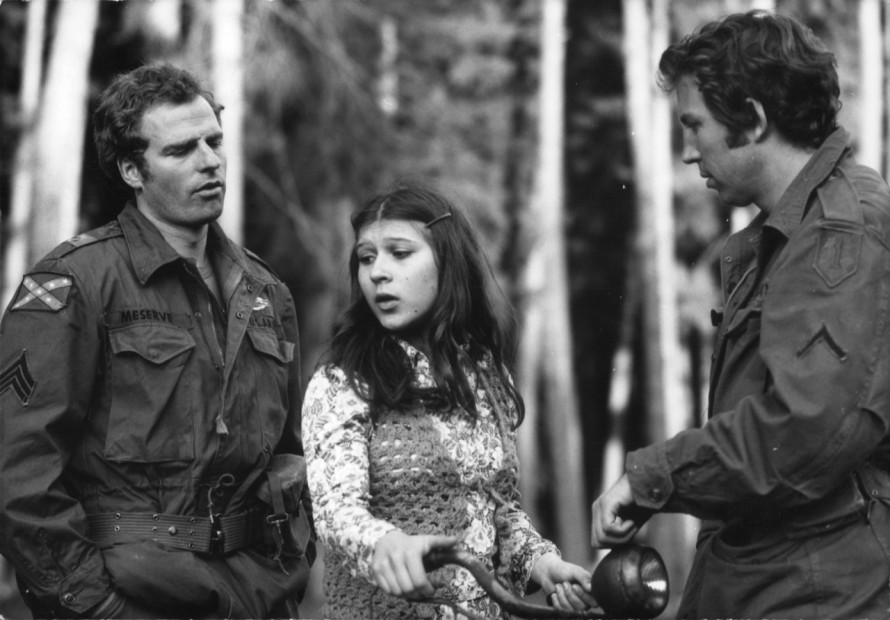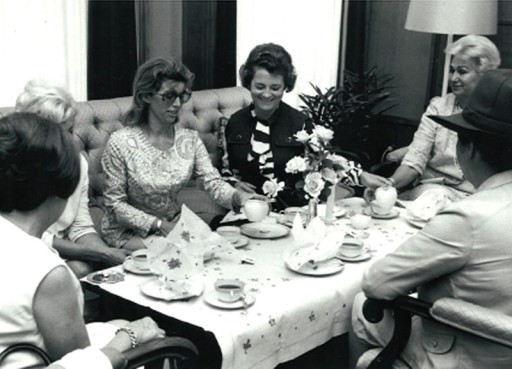1970
20th Berlin International Film Festival
June 26 – July 7, 1970
“Maybe such days will return. (...) The ideas discussed then, the passion, the verve, the radical intellectual flight, and also the sharp criticism directed towards everything established, are a chapter from which we can still draw from today, a model to which we should, from time to time, compare ourselves in order to take stock of what has been achieved.” – Ulrich Gregor reminiscing on the scandal of 1970 and its ramifications.

Still from Michael Verhoeven's o.k., which caused a scandal that resulted in the break up of
The history of the Berlinale is rich in scandals. Today they symbolize grim times and curious times, hard times and sombre times. Looking back, however, one can see how the festival, the film industry and to a degree, society, profited from the conflict. Once – only once, which is quite astonishing in hindsight – was the festival halted prematurely as the result of a scandal. The reasons were typical Berlinale politics. And in retrospect, the consequences had a positive effect on the festival.
o.k. was not okay for some
Michael Verhoeven’s film o.k. was invited to take part in the Competition in 1970. Following the premiere, the jury “neutralised” the film and asked the selection committee for a reappraisal. There were reservations about whether the film “encouraged understanding between nations,” as stated in the statutes of the festival. There had never been such a request from the jury and amidst the excitement it was overlooked that the jury did not actually have the right to make such a move.

Tea time in the guest house of the Senate for the female guests of the festival
The content of the film makes it easy to fathom what lay behind it: in harrowing images o.k. tells the story of the rape and murder of a girl by a group of soldiers. Although Michael Verhoeven set the film in a Central European landscape, there’s no doubt in anyone’s mind that he was reconstructing an authentic case that occurred in 1966 during the Vietnam War that had been picked up by press around the world. The victim was a young Vietnamese woman, the perpetrators American soldiers. And the chairman of the Berlinale’s international jury was American director and cameraman George Stevens.
Rumours about an intervention at the highest political level, accusations of censorship, mutual finger pointing and the all too timid reaction on the part of the festival management fueled the conflict. Especially the Yugoslavian jury member Dusan Makavejev opposed the pressure of the American jury president. He claimed the jury had chosen the “path of censorship” and thereby overstepped its authority. After many press conferences and numerous declarations of protest, the affronted jury announced its resignation. The Competition was cancelled, meaning, in the public eye, that the festival too had been stopped. Some films still continued to be shown, that is, if they hadn’t been withdrawn out of solidarity with one side or the other. Festival director Alfred Bauer and the head of the umbrella organisation Berliner Festspiele GmbH, Walther Schmiederer, announced their resignation. (Bauer came back, Schmiederer didn’t) The future of the Berlinale was uncertain. The china had been shattered and many commentators didn’t believe the pieces could be put back together again.

Congress hall
Is there light at the end of the tunnel?
Amidst the exhaustion of the scandal, the Berlin Culture Senator Stein expressed the hope that after the fierce confrontation subsided, the Berlinale “would stand before a new chance to continue thinking about how to support artistically valuable film.” In fact, the scandal surrounding o.k. was merely the straw that broke the camel’s back, which was already overloaded. In the days before the collapse of the 1970 festival, discussions and hearings were held which no longer addressed merely the pros and contras of Michael Verhoeven’s film, but rather tackled the fundamental direction the festival was taking: the advantages and disadvantages of its “A status”, the inadequate representation of artistic and alternative cinema, the increasing influence of commercial considerations on programming decisions.
As the crisis reached its climax, there had already been thoughts about how a more modern festival would look. The Friends of the German Cinematheque had already held a kind of counter-festival in 1969. In 1970 a programme was organized in the newly-founded Kino Arsenal “on occasion of the Berlin film festival”. The event already addressed the issues and highlighted the kind of content that were to become the subject of broad discussion in the coming months and were soon to be incorporated into the newly structured Berlinale. The counter-festival could run according to plan till the end. The “new” had the right of way, while the “old” had run against a brick wall.